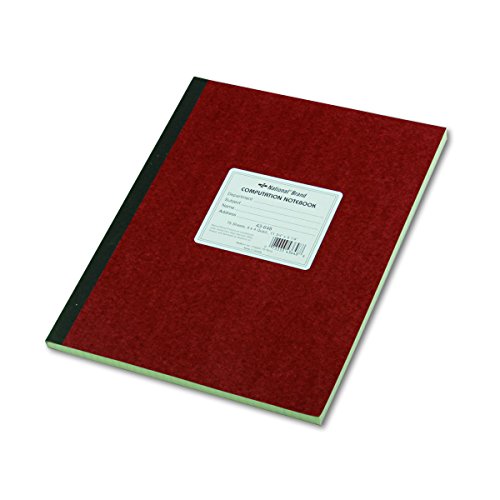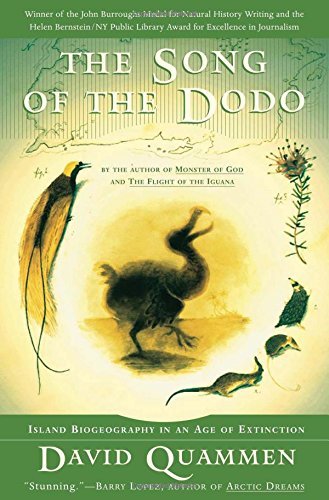Top products from r/labrats
We found 34 product mentions on r/labrats. We ranked the 119 resulting products by number of redditors who mentioned them. Here are the top 20.
1. At the Bench: A Laboratory Navigator, Updated Edition
Sentiment score: 5
Number of reviews: 6
Used Book in Good Condition
 Show Reddit reviews
Show Reddit reviews2. Molecular Cloning: A Laboratory Manual (Fourth Edition): Three-volume set
Sentiment score: 0
Number of reviews: 3
Cold Spring Harbor Laboratory Press
 Show Reddit reviews
Show Reddit reviews3. The Billion Dollar Molecule: One Company's Quest for the Perfect Drug
Sentiment score: 2
Number of reviews: 2
Used Book in Good Condition
 Show Reddit reviews
Show Reddit reviews4. Lab Math: A Handbook of Measurements, Calculations, and Other Quantitative Skills for Use at the Bench
Sentiment score: 1
Number of reviews: 2
Used Book in Good Condition
 Show Reddit reviews
Show Reddit reviews5. National Brand Computation Notebook, 4 X 4 Quad, Brown, Green Paper, 11.75 x 9.25 Inches, 75 Sheets (43648)
Sentiment score: 1
Number of reviews: 2
Computation NotebookPerfect BindingGreen-Eye Ease paperNumbered Pages75 Sheets; 100% Post-consumer paper
 Show Reddit reviews
Show Reddit reviews6. The Checklist Manifesto: How to Get Things Right
Sentiment score: 0
Number of reviews: 1
The Checklist Manifesto How to Get Things Right
 Show Reddit reviews
Show Reddit reviews8. Handbook of Biological Confocal Microscopy
Sentiment score: 1
Number of reviews: 1
 Show Reddit reviews
Show Reddit reviews9. Patch Clamping: An Introductory Guide to Patch Clamp Electrophysiology
Sentiment score: 0
Number of reviews: 1
 Show Reddit reviews
Show Reddit reviews10. Principles and Techniques of Biochemistry and Molecular Biology
Sentiment score: 1
Number of reviews: 1
Cambridge University Press
 Show Reddit reviews
Show Reddit reviews11. Essentials of Writing Biomedical Research Papers. Second Edition
Sentiment score: 0
Number of reviews: 1
 Show Reddit reviews
Show Reddit reviews12. The Song of the Dodo: Island Biogeography in an Age of Extinction
Sentiment score: 1
Number of reviews: 1
Scribner
 Show Reddit reviews
Show Reddit reviews13. Bad Science: Quacks, Hacks, and Big Pharma Flacks
Sentiment score: 0
Number of reviews: 1
 Show Reddit reviews
Show Reddit reviews14. Molecular Biology of the Cell (Sixth Edition)
Sentiment score: 1
Number of reviews: 1
Garland Publishing
 Show Reddit reviews
Show Reddit reviews15. Writing the Laboratory Notebook (An American Chemical Society Publication)
Sentiment score: 1
Number of reviews: 1
Used Book in Good Condition
 Show Reddit reviews
Show Reddit reviews16. Plano 3449 Series Stowaway Boxes
Sentiment score: 0
Number of reviews: 1
Plano 3449 Series StowAway boxes are small clear plastic tackle boxes for small lures and tackle.5 or 7 fixed compartments (depending on model) with clear construction.Ideal for quick fishing trips when you don't want or need to carry lots of gear.Good for bait, hooks, nuts, bolts, trolling motor ac...
 Show Reddit reviews
Show Reddit reviews17. Phylogenetic Trees Made Easy: A How-To Manual
Sentiment score: 1
Number of reviews: 1
 Show Reddit reviews
Show Reddit reviews18. Surviving Your Stupid, Stupid Decision to Go to Grad School
Sentiment score: 0
Number of reviews: 1
Broadway Books
 Show Reddit reviews
Show Reddit reviews


Like the other comment mentioned, I have a notebook that is “my thoughts” basically. It goes where I go. It has random calculations, notes from meetings, notes from seminars, notes of things I want to remember to come back to later, etc. It houses all the stuff that I know I want to have written down, but doesn’t belong in my lab notes or book/article notes.
Books and articles I have on the computer and in some notebooks. I am not too picky on that.
My lab notebook is a little more structured. I use this one and I used to use this one
I really enjoy both. I only stopped using the national brand one because it is not hardback and I am just too rough on it.
When in the lab I do take my lab notebook and my other notebook that is just my thoughts so I have somewhere to write down other stuff without clouding the lab notes.
I feel like clear lab notes are important in the event I ever need to hand an undergrad my notes and tell them to figure it out. I am fortunate to be in a lab with 6 super awesome undergrads that have their shit together better than any others I have seen, but still. Good clear notes go a long long way.
I don't think this is exactly what you're looking for, but At The Bench - A Laboratory Navigator has a 10-page chapter about keeping a lab notebook.
Here's a brief Google Books preview; unfortunately it does not cover the relevant chapter.
This presentation(PDF link) cites a book called Writing the Laboratory Notebook by Howard Kanare, which (based on the Amazon reviews) might be more geared towards industry labs but could still be pretty useful in a general sense. You can find out for yourself, since I managed to find a full text copy online(PDF link). I don't think I'm accessing this through any proxies, so it does seem like it's freely available.
For a more thorough investigation of what's out there, you should consult your institution's library; I'm sure someone will be happy to help track down the exact book you are thinking of, or something functionally equivalent.
edit - here's a PDF link to another presentation, just for fun
I have experience with MEGA to generate trees. I agree that it's a clunky software, but once you understand how to use it, it's not so bad.
I recommend the following book if you want to become a MEGA power-user: https://www.amazon.com/Phylogenetic-Trees-Made-Easy-Manual/dp/0878936068
Before you start... you say you are looking at the protein sequences. Are you starting with the amino acid sequence or the mRNA sequence? If mRNA, make sure all sequences are in the same orientation (ATG/start on the 5' end of the sequence). I find that if you have just one or two sequences that have been copied in the reverse direction, the alignment may not work. You can also save multiple alignments -- try some with seemingly more conserved sequences (less gaps) and try the entire set.
Once you have all your sequences in one FASTA file or multiple FASTA files, import them into MEGA. From the 'Align' menu, choose to edit/build an alignment. Add your sequences. Select all sequences for alignment and then align selected (you can get into some advanced settings here, change the alignment algorithm, etc.) Save the alignment as a .mas file and export as a .meg file.
Now, open your .meg file in MEGA's main window. From the phylogeny menu, select to build a neighbor joining tree. Based on the alignment, the program will auto-build a tree for you. Again, lots of functionality exists in the program, but it's not an intuitive UI.
Happy to help if you have other questions!
Might I recommend the late Jim Pawley's excellent and comprehensive Handbook of Biological Confocal Microscopy?
Handbook of Biological Confocal Microscopy https://www.amazon.com/dp/038725921X/ref=cm_sw_r_cp_apa_i_odTYCbAS6N4TN
The Nikon microscopy U sites are good basic primers. I would also recommend getting to know the staff at your friendly local core facility who can help guide you on specific questions.
Good for you!
Here are some beginner tutorials written by students at my work
https://ourcodingclub.github.io/tutorials/
Also this book is excellent!
https://www.amazon.co.uk/Getting-Started-R-Introduction-Biologists/dp/0199601623
Try to learn ggplot2, it's easier than the standard graphics
ANOVA is built into R but I you'll need to run an ANOVA on a linear or generalised linear model. It's covered in the tutorials I linked.
For example (this won't run it's just an example of code)
Model1 = lm(height ~ sex, data = datafile)
Null.model = lm(height ~ 1, data = datafile)
Model.test = anova(Model1, Null.model, test = "Chisq")
Summary(Model.test)
For a graph it depends on how your data is laid out but you could feed it raw data and plot the means with error bars in ggplot2 with stat_summary like so
ggplot(data = datafile, aes(x=sex, y=height, colour=sex))+
stat_summary(geom="bar", fun.y=mean, position=position_dodge(width=0.95))+
stat_summary(fun.data=mean_se,position=position_dodge(0.95),geom="errorbar")
Hope that helps.
Don't be put off, learning r will make future stuff so much easier. I barely touch excel now
Good books:
Algorithms to Live By: The Computer Science of Human Decisions | Brian Christian and Tom Griffiths
Brand Perrimon 1993
Fire Mello 1998
Beautiful essay
Behave by Robert Sapolsky
https://www.amazon.com/Billion-Dollar-Molecule-Companys-Perfect/dp/0671510576
The Immortal Life of Henrietta Lacks
​
Science fiction:
Asimmov:
I robot
The foundation trilogy
Dune | Hibbert
Flatworld
​
Self help:
​
​
Online resources:
bitesizebio.com
​
​
Great articles:
http://www.pgbovine.net/PhD-memoir.htm
https://blog.regehr.org/archives/743
the song of the dodo by david quammen. one of my favorite science books. i wish there was an audiobook available, i’d love to experience it again on my commute to work.
Everyone needs to read 'The Immortal Life of Henrietta Lacks' - hands down the best science book I've ever read. The audiobook is good too.
I think this book is super handy to have around:
https://www.amazon.com/Lab-Math-Measurements-Calculations-Quantitative/dp/0879696346
It covers the math for all sorts of lab techniques and has one of the best versions of the dilution formula I've found;
[(Concentration you want) / (Concentration you have)] * Total reaction volume = volume of stock to add to reaction.
https://www.amazon.com/At-Bench-Laboratory-Navigator-Updated/dp/0879697083
Is a really good start - it also covers more "big picture" items about working in a lab, like etiquette and safety.
http://kirschner.med.harvard.edu/files/protocols/Novagen_petsystem.pdf
pet plasmids manual from novagen. Some protein work scattered about, a lot of cloning. Mostly just generic stuff but can bring up ideas to consider.
https://www.sigmaaldrich.com/content/dam/sigma-aldrich/docs/Sigma-Aldrich/General_Information/1/ge-strategies-for-protein-purification.pdf No protocols but general information on purifications in general.
https://www.amazon.com/Principles-Techniques-Biochemistry-Molecular-Biology/dp/0521731674 Same. Some useful tips and explains care of equipment and uses.
Very highly recommend https://www.amazon.com/At-Bench-Laboratory-Navigator-Updated/dp/0879697083. In grad school, we kept a copy in the lab and gave specific readings to new lab members. It's a super-friendly and pragmatic book, targeted to readers in exactly your situation.
But no book will resolve all the contradictory lab folklore, the field has lots of history and habitual behavior. Many researchers believe that if a particular protocol consistently works, then it's good because it eliminates a source of uncertainty. That doesn't make it the optimal protocol, but because so much of experimental science is eliminating sources of uncertainty, it's a perfectly reasonable opinion.
https://www.amazon.com/gp/aw/d/0815344325/ref=dp_ob_neva_mobile
Best book ever on the subject.
At the Bench: A Laboratory Navigator by Kathy Barker is really helpful. I bought this book and read it when I started working in the lab. It is very basic!
https://www.amazon.com/Writing-Science-Papers-Proposals-Funded/dp/0199760241
I enjoyed this one.
I've always liked "At the Bench" by Kathy Barker.
I highly recommend you these books: labmaths and at the bench
Bad Science by Ben Goldacre is the only science book I've convinced my non-scientist family to read. It drastically cut down on the number of phone calls I get about whether or not some Facebook-promoted scam is going to cure whatever ails them.
Exactly what I was going to recommend. Fantastic book.
https://www.amazon.com/Lab-Math-Measurements-Calculations-Quantitative/dp/0879696346
For a light-hearted survival guide, check out http://www.amazon.com/Surviving-Your-Stupid-Decision-School/dp/0307589447 .
https://www.amazon.com/Billion-Dollar-Molecule-Companys-Perfect/dp/0671510576
Something of an origin story of a lot of common-day drug discovery.
As always: Molecular Cloning
https://www.amazon.co.uk/Molecular-Cloning-Laboratory-Manual-Fourth/dp/1936113422
https://www.amazon.com/Molecular-Cloning-Laboratory-Manual-Three/dp/1936113422
Green and Sambrook's Molecular Cloning is usually my go-to reference for techniques.
https://www.amazon.com/Channels-Excitable-Membranes-Bertil-Hille/dp/0878933212
https://www.amazon.com/Patch-Clamping-Introductory-Guide-Electrophysiology/dp/047148685X/ref=sr_1_1?s=books&ie=UTF8&qid=1518292111&sr=1-1&keywords=patch+clamp+physiology
http://smile.amazon.com/gp/product/B00007LV4B/ref=oh_aui_detailpage_o00_s00?ie=UTF8&psc=1
Big enough that you can glue whole pages in there. Gridded, numbered pages, very professional. And not very pricey.
We use these tackle boxes and haven't had any issues. We use 3-4mL of liquid to cover a membrane.